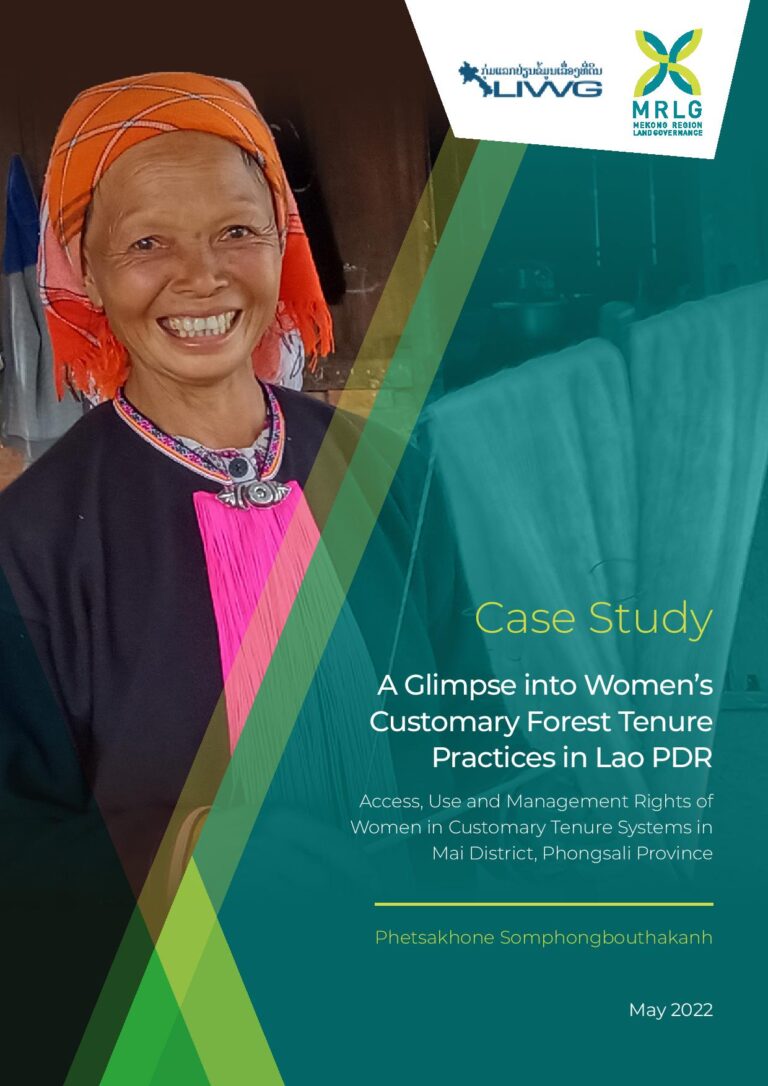Resource information
The case study explores the intersect between customary tenure systems and gender roles in two villages in Phongsali district in the north of Laos. The country has a diverse population of ethnic communities who depend on forests and other natural resources for their livelihoods. These communities play an important role for conserving complex landscapes. However, their traditional land tenure practices are insufficiently documented and therefore poorly understood, and even more so the gender relations in customary systems. Based on field research, the study compares two distinctly different ethnic groups, Khmou Ou and White Tai. Despite being geographically close, the study shows how these ethnic groups differ in terms of traditional forest management and gender roles. It found that women have intimate relationships with their forests yet have less rights to forests than men (such as rights to inheritance and access to forest income).


